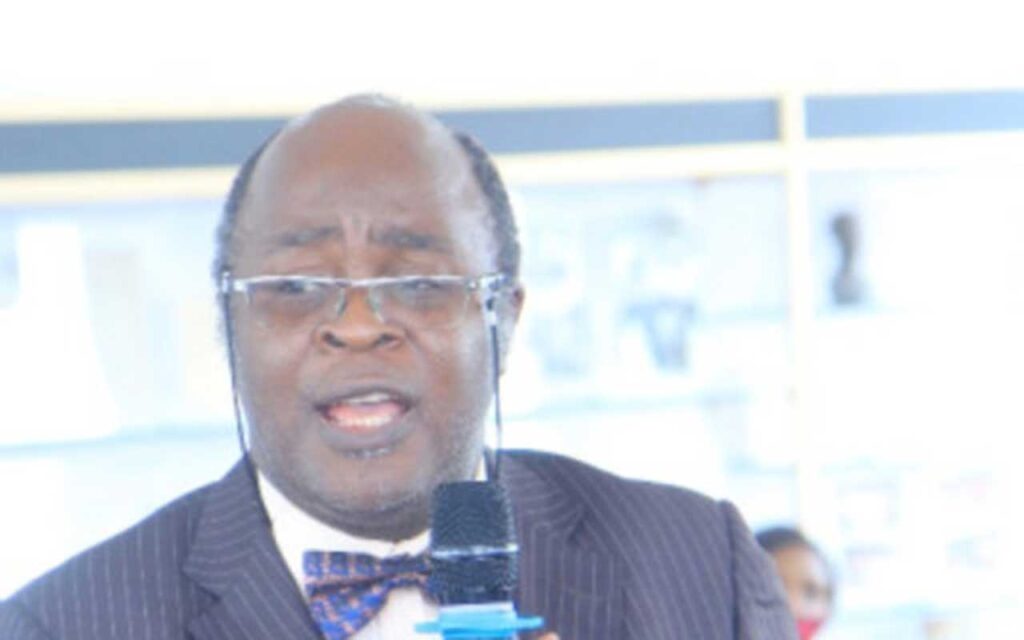
After several years in the parliament, the HIV/AIDS Anti-Discrimination bill 2014 eventually scaled through and was subsequently passed to President Goodluck Jonathan. Without much pressures, he signed the bill into law. Now, stakeholders, very grateful for the law, demand the commencement of the implementation phase.
IT was a cheery news for millions of Nigerians living with HIV, when President Goodluck Jonathan on February 3, 2015, signed the Human Immune Virus/Acquired Immune Deficiency Syndrome (HIV/AIDS) Anti-Discrimination bill 2014 into law.
Their joy is quite understandable! Those living with the virus had had to suffer all manner of stigmisation, humiliation, discrimination and denials. Analysts believe that the signing of the law reflects Nigeria’s commitment to stopping all forms of stigmatization and discrimination targeted at people living with HIV.
The law made provision for the prevention of HIV-related discrimination and provides access to healthcare and other services. The Act also provides for protection of the rights and dignity of people living with HIV and those affected by AIDS in Nigeria.
The new law is a source of regenerated hope that all acts of discrimination against people living with HIV such as recruitment and termination of employment, denial of access to services including healthcare, education, association and other social services will be quickly reduced and ultimately ended.
The law is also part of government’s effort to end the AIDS epidemic by 2030. But the question on the lips of many bothers on the implementation of the law. When the Guardian sought the view of some of the civil society groups about the law, they harped on the significance of implementation.
The director, Centre For Mmadu on Human Rights (C4M), Uju Okeke said law is highly appreciated, but emphasised the need to shift attention to implementation. She said: “The National HIV and AIDS Anti-stigmatization and Anti-discrimination Act is one of the good things that has happened this year.
It is said that one of the ways of evaluating government’s stance on an issue is through laws and policies put in place to address it. By enacting this Law, the Nigerian government is not only exhibiting commitment towards issues of HIV/AIDS and PLWHAs but restoring the Constitutional right to dignity of Nigerians living with and affected by HIV and AIDS.
What a relief to those living and those affected by HIV/AIDS! “The implication is that new infections will reduce as more people will desire to know their serostatus while those who know their serostatus will be willing to disclose.
It will encourage the use of available care and support services previously hindered by fear of discrimination and rejection by family and friends. It will also eradicate discrimination fuelled by ignorance and its associated needless and preventable deaths.
“It is hoped that henceforth, HIV/AIDS related denial/discharge from employment, denial of accommodation by landlords, denial/dismissal from schools, denial of treatments in hospitals and family ostracism among others will be a thing of the past.
As HIV/AIDS does not make one a bad tenant, does not affect ability to learn in schools. By allowing PLWHIV contribute their quota in the work place, Nigeria will be the better for it. “But the next important step is implementation of this law.
To achieve this, awareness of the law needs to be created as knowledge of laws promotes better compliance and help in their engagement.” The National Agency for Aids Control (NACA) had hailed the signing into law of the HIV/AIDS Act 2014 by President Jonathan. The Agency described it as a landmark legislation.
According to the Chief Communications Officer at NACA, Toyin Aderibigbe, the law brings a renewed hope of a gradual reduction and ultimate end to acts of discrimination against people living with the disease and a expression of Nigeria’s dedication to stopping all forms of stigmatization and discrimination targeted at people living with HIV. Her words: “It makes provisions for the prevention of HIV-related discrimination and provides for access to healthcare and other services.
It also provides for protection of the human rights and dignity of people living with HIV and those affected by AIDS in Nigeria. “The new law is a source of renewed hope that all acts of discrimination against people living with HIV such as recruitment and termination of employment, denial of access to services including healthcare, education, association and other social services will be quickly reduced and ultimately ended. “The law is the latest addition to Nigeria’s commitment to end the scourge by 2030.
During the past four years alone, close to four million pregnant women were tested for HIV and now know their status, while 8.2 million adults in the general population were tested. “By 2013, the number of HIV infections had declined by 35percent and Nigeria is pursuing efforts to stop new infections altogether.
The number of sites providing services to prevent mother-to-child transmission of HIV increased from 675 in 2010 to 5,622 in 2013”. Toyin explained that Nigerian government is fully committed to improving the health of Nigerians and getting to zero new HIV infections, zero AIDS related deaths and zero discrimination against infected persons.
UNAIDS Country Director for Nigeria and Focal Point for ECOWAS, Dr. Bilali Camara, commended Nigeria for the legislation. He said President Jonathan and the lawmakers must be applauded for making the Anti-Discrimination law a reality. He pledged that his organisation would work with government to ensure the full implementation of the law. “UNAIDS will work with government to support the smooth implementation of this law, so that AIDS epidemic becomes history by 2030”, he said.
Also, the Network of People Living with HIV in Nigeria (NEPWHAN) expressed joy in the legislation. The group described the signing of the bill into law as a new year gift.
National Secretary of the body, Mr. Victor Omosehin said: “This is a New Year gift from Mr. President to the 3.5 million Nigerians living with HIV. We appreciate this unprecedented development as it is the beginning of the end to stigma and discrimination in Nigeria” According to the World Health Organisation (WHO) statistics, Nigeria has 3.1 million persons living with HIV/AIDS.
The country is the second largest in the world after South Africa with 5.6 million. The most disturbing aspect of the thing is that 70% of HIV/AIDS victims in Nigeria fall into the most productive segment of the population being age 20-39.
The implication of this trend is that the nation runs the risk of her workforce being depleted by HIV/AIDS if drastic steps are not taken urgently to reverse the spread of the disease.
It is interesting to note that the Senate had on April 9, 2014 passed a bill seeking to prevent the stigmatisation of and discrimination against those living with or affected by HIV and AIDS in Nigeria. Before the senators passed the HIV and AIDS Anti-discrimination Bill, it has lied in the National Assembly for several years.
The director-general, National Agency for the Control of AIDS (NACA), Prof John Idoko, described the passage of the bill as a reflection of Nigeria’s commitment to stopping all forms of stigmatisation and discrimination targeted at HIV sufferers.
He pledged that the two versions of the bill then passed by parliament would be harmonised and sent to President Jonathan for assent.
Through to his words, they were promptly harmonised and sent to the president. Yet, in the heat of political campaigns, the president endorsed the bill.
Buoyed up by the successes, NACA’s chief of communications, Mrs Aderibibge promised to liase with the Senate Committee on Health and the House of Representatives Committee on AIDS, Tuberculosis and Malaria to push for the bill to become law.
They indeed did. According to Idoko, the federal government remained fully committed to improving the health of Nigerians and getting to zero on new HIV infections, zero AIDS-related deaths and zero discrimination.
The bill, in addition to the already stated provisions seeks to reduce the HIV burden through the prevention of discrimination and stigmatisation on the basis of real or perceived HIV status, thereby encouraging voluntary testing and counseling, access to treatment, improved health outcomes and reduction of risky sex behaviours.
The law eventually provides for a punishment of either two-year jail term or a maximum of N1million fine on any institution or organisation which disclosed the status of an infected person obtained in confidence.
Now that the law is in existence, the onus lies on relevant agencies and organisations to ensure that the full implementation of the law commences. It is also imperative that the President endorses the People Living with Disability (PWD) bill before his tenure terminates in May. This will give those vulnerable members of the society a high sense of belonging.











